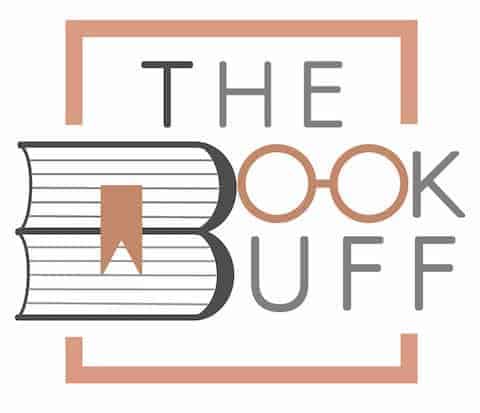Does Reading Make You a Better Speaker? [Helpful Guide!]
Disclosure: This post may contain affiliate links. – meaning I may get a commission if you decide to purchase through my links, at no additional cost to you.
In our modern technology-driven world, where we are more engrossed than ever with ourselves, people are losing the ability to be good speakers! It seems we are losing our speaking skills and people are often hesitant to engage in conversations or speak in public!
But, if you like to read books, you may be wondering whether reading makes you a better speaker!
Reading definitely helps to improve speaking skills and make you a better speaker. There is a strong relationship between reading and speaking skills. Reading contributes, amongst other things, to vocabulary building, accuracy in the use of grammar, and enhances the ability to spontaneously speak and communicate verbally.
In this article, we will first understand the impact of reading on your speaking skills. Then we’ll explore the differences and similarities between reading and speaking skills. In the end, I’ll provide you with a few tips on how and what to read to improve your speaking skills.
So, let’s get started, shall we?
Can Reading Improve Your Speaking Skills?

Nowadays, the assumption that reading improves speaking skills is widely accepted in the educational and linguistic fields.
In the early 2010s for instance, studies at the Ishik University have found that although reading and speaking need different skills, many of the reading and speaking skills actually have a reciprocal relationship.
Related Article – 21 Benefits of Reading Regularly [Here’s Why We Should All Read!]
This, amongst other things, means that improving one can have a positive impact on the other! Thus, reading can definitely improve speaking skills!
Here are some of the ways how reading can improve your speaking skills –
1. Vocabulary and Grammar
When you read a good book, you see how language experts use language effectively.
You expand your vocabulary with new words that you discover in the books, and you discover how language experts apply grammar rules. The more books you read the more new words you add to your vocabulary.
You also experience how authors use well-known words, as well as words that have been unknown to you, grammatically correct. Through reading, you learn unconsciously how to fit words and phrases together when you are speaking. Reading helps you to master language patterns.
When you are in conversation with somebody or address people in public, these new words and how they are used forms part of your “speaking tools.”
2. Accuracy and Fluency
All speakers want to convey their messages accurately and fluently, whether it is in casual or private conversation, or in public.
Accuracy is defined as the correct use of vocabulary, grammar, and pronunciation, and fluency is the ability to spontaneously speak and communicate effectively.
The problem, however, is that speakers often are not correctly and fluently conveying what they want to say. This is mostly a result of either a small relevant vocabulary or a lack of the ability to spontaneously apply words and phrases grammatically correct.
Speakers who have experienced a lack of accuracy or fluency and started to read much more than before, agree that their speaking abilities have improved since they’ve started to read a lot.
They can now without consciously trying to use new words or construct sentences correctly, subconsciously find the correct word in their expanded vocabulary and use grammar correctly.
And all this without special classes or training, but only because they read a lot!
Difference Between Reading and Speaking Skills
Although reading influences speaking skills positively, there are differences between reading and speaking skills.
The main difference between speaking and reading is that speaking is a process of verbal communication, while reading is a process of comprehension of something written. Reading skills enable you to assimilate and learn whereas speaking skills allow you to reproduce words that you’ve learned!
Thus, speaking skills involve tools to negotiate, exchange opinions and ideas, share and express feelings, and so forth. You need specific skills to execute these actions effectively. Speaking also needs and consumes body energy, and interestingly, often makes you fluent in jargon.
Reading skills has more to do with tools to examine, inspect, and acquire knowledge. Reading also doesn’t require so much energy as speaking but needs devotion and a sense of scrutiny.
It is sometimes said that to speak, you need skills to “extract” words and “formulas” from your brain and memory and use them. When you read, however, words and grammar formulas are received by your brain and put into memory.
Thus, although reading and speaking use different skills, reading helps you to be a better speaker by supplying new words and concepts and teaching you how to use grammar correctly.
Does Reading Aloud Help in Speaking Better?
There are many reasons why it is good to read aloud.
Generally speaking, reading out loud can help in becoming a better speaker. Reading aloud helps you enunciate words properly and enables natural language composition. When you speak, your brain’s muscle memory is triggered and you tend to have a better recall value of the words.
In an article in a US public library’s newsletter, the benefits of reading out loud are discussed. The author of the article summarized the general views in this regard.
The benefits include the fact that the spoken word is powerful, and conveys much more than the written text. When you hear the word your brain more effectively stores the word itself, its meaning in context and the correct use of the word.
The better a word and information relevant to the word are stored in your memory the more you will start using it spontaneously when speaking. You increase your spoken word vocabulary faster when reading out loud. This is also one of the reasons why reading aloud is recommended for people who stutter when speaking.
So, yes, reading aloud helps you speak better.
Types of Books to Read to Improve Speaking Skills

In my experience, the best type of reading materials to improve your speaking skills are plays, dramas, and fiction. Fiction books, especially modern fiction, tend to generally use words, phrases, and sentences as people use them in everyday life.
By reading good plays and dramas you experience the language being used between individuals with no pretension or artificial “padding.” You expand your speaking vocabulary with words and phrases actually being used by people.
If you need to expand your speaking vocabulary specifically to speak with others in a specific field like technology, computer science, art, and so forth, it is always good to read subject material as well.
By reading about the specific field you expand your speaking vocabulary with subject-specific terms to enhance your speaking abilities.
One thing to remember is if you are interested in improving your speaking skills specifically focused on a particular geography, or a regional dialect, make sure that you choose your books accordingly. Different cultures have different ways of using the same phrase differently.
Other Tips to Improve Speaking Skills
Here are a few more tips to improve your speaking skills:
1. Read and Listen to the same Book
If you have the opportunity to read a book and simultaneously listen to it on an audiobook you literally double the speed of remembering words and phrases.
If you can’t do it simultaneously, it is still a good idea to listen to the audiobook after you’ve read the book.
One important benefit of listening to an audiobook is that you can hear the correct pronunciation of new and unknown words. When you know how to pronounce a word you’ll have the confidence to use it when speaking.
2. Read Aloud in Front of a Mirror
Talking about confidence – it is recommended that you read aloud in front of a mirror to overcome confidence issues. To see yourself reading confidently makes it easier for you to speak confidently.
3. Network and Become Social
When you work on your speaking skills to become a better speaker, always remember that apart from reading more books you have to apply your expanded speaking vocabulary and other developed skills.
Reading will make you a better speaker, but it is of no use if you don’t use the enhanced skills.
Create opportunities where you can practice your skills. One of the best ways to do that would be to socialize a lot.

About the Author
Akansha is a former business journalist and a seasoned communications professional. She is the founder of TheBookBuff, an avid storyteller, and a lifelong biblophile! Check out her profile page to know more about Akansha.

![Can Reading Aloud Help With Stuttering? [Here’s How!]](https://thebookbuff.com/wp-content/uploads/2021/12/pexels-karolina-grabowska-7281581-300x200.webp)
![How to Identify Kindle Model? [Know Which Kindle You Own!]](https://thebookbuff.com/wp-content/uploads/2021/11/kwame-anim-PJ3rjIfD__k-unsplash-optimized-300x200.webp)


![Kindle vs. iPad: Which is Better for Reading in 2023? [Guide!]](https://thebookbuff.com/wp-content/uploads/2022/08/reading-on-iPad-300x223.webp)
![[Verified] Here’s How to Contact Amazon Customer Service!](https://thebookbuff.com/wp-content/uploads/2021/11/christian-wiediger-rymh7EZPqRs-unsplash-optimized-300x200.webp)